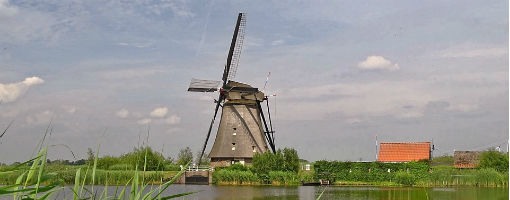Pensioenfonds ING has confirmed that it is "keeping a close eye" on recent market volatility, with the board also currently assessing whether the transition plans for the switch to the new pension system can be implemented.
In a scheme update, Pensioenfonds ING executive director, Peter van Meel, said that most savers will be aware that the stock markets have been "very volatile" in the first part of the year, suggesting that many may be wondering what the consequences are on their pensions.
Indeed, a separate update from Dutch pensions regulator De Nederlandsche Bank (DNB) said that uncertainty is currently "exceptionally high", mainly due to the unpredictability of the trade policy initiated by the US government and increasing geopolitical tensions.
It also pointed out that the trade war is causing a "shock", with economic and financial consequences that are still difficult to predict.
The impact of this market volatility has already been seen in scheme funding levels, with a number of Dutch pension funds reporting a negative return on investments due to the US tariffs.
Pensioenfonds ING also confirmed that whilst the coverage ratio was over 136 per cent at the start of the year, the fall in prices on the stock markets caused the coverage ratio to fall to 135 per cent in April.
However, Pensioenfonds ING said that whilst the "significant" price fluctuations in shares have had a negative impact on the pension assets recently, "this risk is part of investing" emphasising that, over the long-term, this risk is expected to be rewarded.
Van Meel also reassured savers that Pensioenfonds ING, like other pension funds, is a long-term investor, arguing that "temporary fluctuations therefore do not have much influence".
More broadly, he also confirmed that the board of the ING Pension Fund is still assessing whether the transition plans for the transition to the new pension system can be implemented and whether agreements are balanced for all participants.
According to van Meel, there has already been an increase in inquiries about the new pension system, many of which have focused on the uncertainty of the pension payment in the new system.
The board is expected to share a decision on whether the transition plans can be implemented and whether agreements are balanced for all participants in June 2025.
Under the current timeline, ING Pension Fund is expected to transition to the new system from 1 July 2027, although this is subject to permission from DNB.
However, the transition period to switch to the new system will run until 1 January 2028 at the latest.
And number of Dutch pension funds have recently said that they are expecting to postpone the date they plan to transition to the country’s new pension system, after the reforms have faced last-minute challenges, with a political dispute over a proposed amendment to the Wtp by New Social Contract (NSC) and Farmer-Citizen Movement (BBB).
Latest News
-
Average Dutch DB pension funding ratio stabilises at 128% in February
-
Royal Mail CDC scheme delivers pension increase of 6.4% in first year
-
Sweden’s Krykans Pension reports 4.2 per cent return for 2025
-
PGGM invests in second round of funding for Dutch energy start up RIFT
-
Norwegian pension funds report 8.4% average return for 2025 – Finanstilsynet
-
Alecta’s DB investments total SEK 1,058bn at year-end 2025
Podcast: Stepping up to the challenge

In the latest European Pensions podcast, Natalie Tuck talks to PensionsEurope chair, Jerry Moriarty, about his new role and the European pension policy agenda
Podcast: The benefits of private equity in pension fund portfolios

The outbreak of the Covid-19 pandemic, in which stock markets have seen increased volatility, combined with global low interest rates has led to alternative asset classes rising in popularity. Private equity is one of the top runners in this category, and for good reason.
In this podcast, Munich Private Equity Partners Managing Director, Christopher Bär, chats to European Pensions Editor, Natalie Tuck, about the benefits private equity investments can bring to pension fund portfolios and the best approach to take.
In this podcast, Munich Private Equity Partners Managing Director, Christopher Bär, chats to European Pensions Editor, Natalie Tuck, about the benefits private equity investments can bring to pension fund portfolios and the best approach to take.
Mitigating risk
BNP Paribas Asset Management’s head of pension solutions, Julien Halfon, discusses equity hedging with Laura Blows
© 2019 Perspective Publishing Privacy & Cookies








Recent Stories